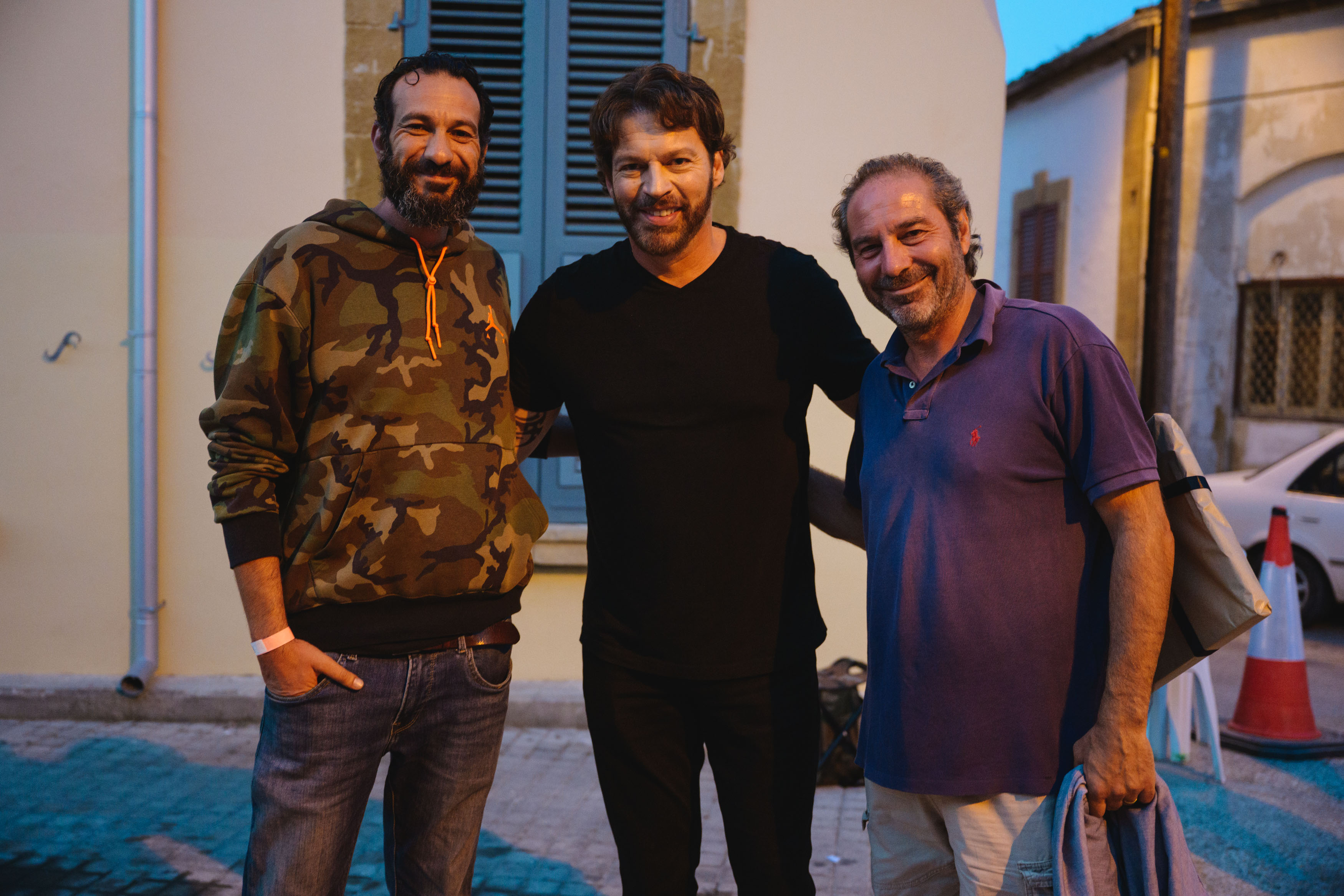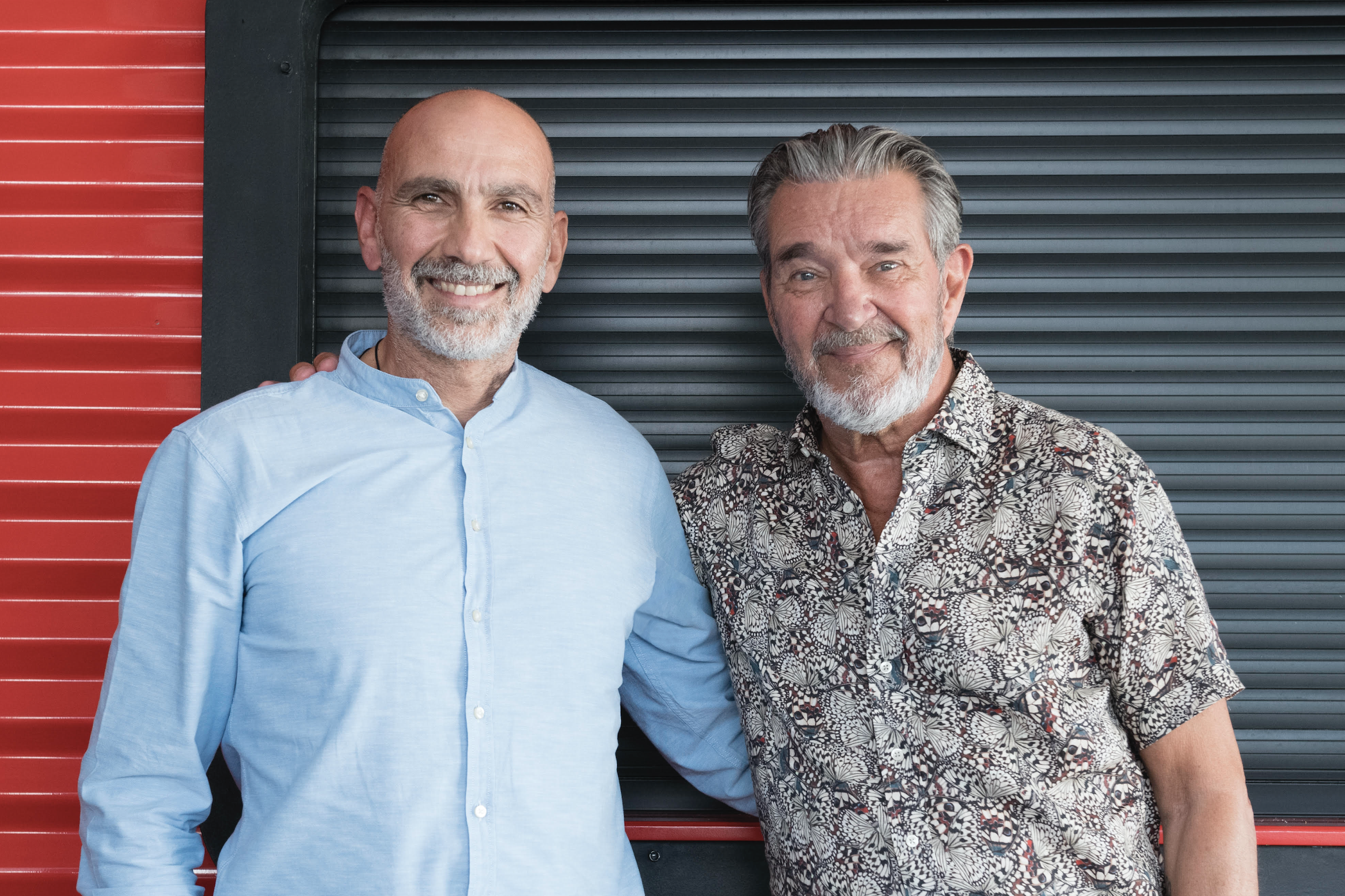“We will be seeing the economic impact of Find Me Falling in the millions of euros for years to come”
In this exclusive interview with the Cyprus Mail, Dionysios Manganis, Executive Producer at Green Olive Films, and Simos Manganis, Founder and CEO, delve into the rise of Cyprus as a competitive player in the global film industry.
With Green Olive Films at the forefront since 1996, the company has been instrumental in putting Cyprus on the map for international productions, from major advertising campaigns to feature films.
Their latest project, Find Me Falling, a romantic comedy that recently topped Netflix’s global charts, showcases Cyprus’ potential as a vibrant filming location.
Within just three days of its release in July, Find Me Falling reached 22.5 million streaming hours, drawing worldwide attention to the island’s cinematic appeal and economic potential.
The Manganis brothers discuss how government incentives like the Cyprus Cash Rebate have transformed the island’s film industry, leading to significant local economic benefits and job creation. They also share insights into the broader business opportunities film productions bring to Cyprus, and the essential role the audiovisual sector could play in diversifying and strengthening the island’s economy for years to come.

Charting Cyprus’ cinematic future with Green Olive Films
CM: Can you tell us about the initial decision to film this project in Cyprus and how the location contributed to the film’s narrative and visual appeal?
Dionysios & Simos Manganis: The success of Find Me Falling is due to the amazing talent of Stelana Kliris as a writer, director and producer. She has helped more than 50 million people to explore Cyprus. She knows how to create characters who evolve within the parameters of Cypriot culture. They help viewers who might know nothing about the island to feel connected to the landscape and our people. Many of the viewers who watched Find Me Falling this summer on Netflix will consider visiting Cyprus because of Stelana’s film. It’s very important to recognise that these projects are not only able to create opportunities for the film industry, but they also create opportunities for other sectors such as tourism.
CM: Green Olive Films has been a staple in Cyprus and Greece since 1996. How has the film industry in Cyprus evolved since you first started, and what significant changes have you witnessed?
Dionysios & Simos Manganis: Green Olive Films began by working on international commercials in 1996 and we opened our office in Greece in 2001. The market has expanded and become much more visible in the last 30 years, especially after the 2004 Athens Olympics when we supported content creation for the American broadcaster NBC.
But we only began to see more consistency in film and TV projects after the governments in Greece and Cyprus created their cash rebate schemes in 2018 and 2019. Greece has always been a step ahead because of its history with cinema while Cyprus evolved later but with a faster pace.
The gap has narrowed because of the cash rebate schemes that positioned both countries at a similar level to compete for projects commissioned for the world’s biggest streaming platforms and networks. Many projects attracted to Cyprus are still built upon the sun and sand model that has been part of tourism promotion since the 1970s.
Exotic summer vibes have an enduring appeal, but we need to be careful with this approach because Greece and Cyprus are not the only countries that have them. We have started to attract more diverse projects because we are changing our mindset so that audiovisual is no longer considered just a creative industry. We are training crews and establishing the professions that can support complex business deals.
People are beginning to understand the importance of organisation, consistency, and project management. We are focused on banking, finance, accountants, lawyers, real estate, catering, transportation as well as the creative side. We need to understand that Find Me Falling could not have been made without the above.
We need both aspects of the business for our creative talents to shine. These investments allow writers and directors to come to Cyprus thinking about contemporary dilemmas and relationships that could exist anywhere. As a result, the distance from Greece is shrinking.
CM: What specific business opportunities does film production in Cyprus create, both for local businesses and for the broader economy?
Dionysios & Simos Manganis: Our goal from the beginning was to create an all-year ecosystem, full-time jobs and deeper investments in the industry. This approach increases hotel bookings, food orders, and it finances equipment purchases that allow us to work more and better.
The local economy will continue to grow from international content creation – provided the government keeps the cash rebate open. We need to recognise audiovisual as an international profession that is also a pillar of the local economy.
Next, we need a creative policy that facilitates knowledge transfer. International productions help to train local crews by helping them level up their skills – that way our professionals can compete increasingly on an international scale.

CM: Can you elaborate on the economic benefits that Find Me Falling has brought to Cyprus, especially in terms of job creation and local business engagement?
Dionysios & Simos Manganis: The immediate impact of the project was about 350-400 jobs during preparation and filming. There was a considerable amount of money spent on the island in the form of foreign investment with an impact on multiple sectors. These projects are also a form of paid training for our crew because they help them to gain international work experience.
In terms of marketing value, the film is a 90-minute advertising feature for Cyprus and its culture, and more than 300 million hours of this footage has been watched by people worldwide. Hundreds of international articles have been generated and people will become more aware when they see content from Cyprus.
When Hollywood actors talk about how much they loved filming in Cyprus and the friendships they made with Cypriot people, when they talk about our food and they share halloumi with their friends, the impact is enormous.
We will be seeing the economic impact of Find Me Falling in the millions of euros for years to come.
CM: What long-term impacts do you foresee for Cyprus as a filming destination following the global success of Find Me Falling?
Dionysios & Simos Manganis: The long-term impact isn’t guaranteed. First, we need to recognise the impact of Stelana Kliris. She has shown the way forward to other local filmmakers. It’s our duty as mentors, producers, film executives, the film commission, and the state to nourish these storytellers, protect them and enable them in any way possible to flourish.
They need to tell local stories that have international resonance. Second, in terms of economics, the audiovisual industry generates 247 billion of the world’s GDP, and if we can earn a tiny piece for Cyprus it will make a significant mark on our national GDP.
In reality, it is up to the government to decide if we will accomplish this. Will the success of Find Me Falling become a case study for how we capture international business? Will the audiovisual industry become a pillar of our economy, or will all the fireworks flash out in front of our eyes?
If we want to make an impact in audiovisual, we need to protect and continue to develop our film commission and the cash rebate. There will need to be automated procedures and more people in the administration to handle the increased applications that follow after the success.
We need to keep developing a sustainable audiovisual ecosystem with banks, accountants, law firms, and trained crews, as well as legislation, permits, and visa procedures. All the ministries need to be trained and be in synch. This will be key in safeguarding and building on what we have accomplished during the last few years.
CM: How does Cyprus’ geographical location and climate enhance its appeal as a filming destination for international productions?
Dionysios & Simos Manganis: We are 3-4 hours from Central Europe and farther from the UK, so geography is not part of the appeal, especially since a lot of crew and equipment still need to be flown to the island. Cyprus must develop its infrastructure fast so it can have a self-sufficient industry, so that we have everything in place, because this will make all the difference in landing deals to make film projects. Regarding climate, I would have answered differently 3 years ago.
The fact that Cyprus has all-year sunny weather is a plus, but there are other destinations with cash rebates like Crete, Malta and Mallorca. In the last 3 years, we have seen the landscape become less green, and the months of July and August are becoming impossible for film shoots because of the heat. The moral is that we won’t get projects simply because we are here, but because we have shown our professionalism.
We need to make smart choices now to support the audiovisual ecosystem, because only then can we continue to grow.
CM: Can you discuss the support and incentives provided by the Cypriot government to the film industry, and how these have influenced your decision to base Green Olive Films here?
Dionysios & Simos Manganis: I founded Green Olive Films in 1996. I wanted to promote Cyprus as a destination for filming. That has always been our goal. Back then there was no cash rebate scheme and no understanding of the industry we were developing. I knew that bringing film productions to Cyprus would not be a sustainable business, so we turned to commercials. In 1998, although we had zero budget for marketing, I started going to the Cannes advertising festival to present Cyprus as a destination for filming international commercials.
We invested in photographing Cyprus differently and I prepared presentations with information, pictures and videos that showed a different Cyprus than the typical postcard tourist guide. I presented to producers and directors who did not even know where Cyprus was and some of them laughed. But that same year, I managed to bring the first international commercial to Cyprus. We shot at Phinikoudes beach as if it were a beach in Cannes, France, and the project was for the Erste Bank in Austria.
I remember watching that commercial on a Lufthansa flight to Frankfurt. I saw our international future back then and realised the potential and power of the image. Since 1998, we have shot more than 600 hundred international campaigns in Cyprus and Greece. I’ve been in Europe, the US, Russia, and South Africa, and I would see campaigns that have been shot in Cyprus and Greece.
Over the years we shot with the world’s biggest brands and top directors, and our name was much bigger internationally than it was locally. Because we have been working this way for so many years, we got to know cash rebates in different countries, and we saw countries introduce cash rebate schemes that would collapse after a few years.
So the reality is that when Cyprus created the first cash rebate scheme, we waited to see how it would evolve before going to our clients to introduce it.
The cash rebate has created much bigger opportunities to attract business to Cyprus, and we want to make sure that it becomes sustainable so that we can keep promoting Cyprus.


